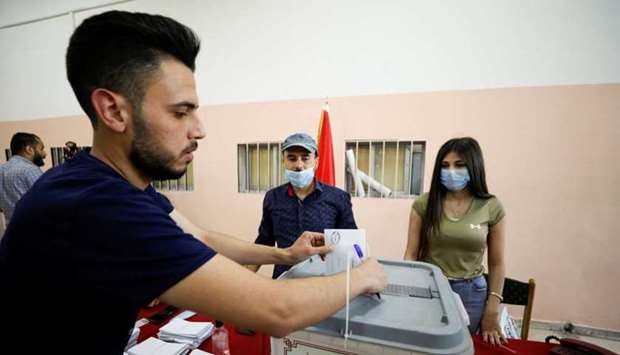Polling stations opened on Wednesday across Syria in a presidential election that is set to usher Bashar al-Assad into a fourth term in office.
The government says the election shows Syria is functioning normally despite a decade-old war, but the opposition and Western nations view it as merely rubber-stamping Assad's grip on power. Assad is running against two obscure candidates.
In Damascus University's Faculty of Arts hundreds of students lined up to vote, with several buses parked outside.
"We came to elect president Bashar al-Assad...without him Syria would not be Syria," Amal, a nursing student, said.
"With our blood and soul we sacrifice our lives for you Bashar," other students chanted ahead of the opening of the polling stations.
Authorities have in the last few days organised large rallies across the country in an effort to ensure a big turnout on election day, officials privately said.
The country's powerful security apparatus that underpins Assad's Alawite minority-dominated rule has also instructed senior officials to vote, they added.
"We have been told we have to go to the polls or bear responsibility for not voting," said Jafaar, a government employee in Latakia who gave his first name only for fear of reprisals.
Assad first took power in 2000 on the death of his father Hafez, who had ruled for 30 years before that.
Assad's rule has been defined by a decade-long war that erupted after peaceful protests against his authoritarian rule in 2011. The conflict has killed hundreds of thousands of people and driven 11 million from their homes, about half the country's population.
In parts of the southern city of Deraa, the scene of the first anti-Assad protests against his authoritarian rule, local figures called for a general strike to protest the election.
"All people reject the rule of the son of Hafez," read graffiti scribbled across several towns in southern Syria, referring to Assad's father.
The other two candidates in the election are former deputy cabinet minister Abdallah Saloum Abdallah, and Mahmoud Ahmed Marei, head of a small, officially sanctioned opposition party.
The foreign ministers of France, Germany, Italy, Britain and the United States said in a statement on Tuesday, criticising leader Bashar al-Assad, that the elections would not be free or fair.

A man casts his vote during the presidential elections at a polling centre in Damascus, Syria
